Posted on December 5, 2013
Dashing Through The Dogma In A One Horse Open Sleigh
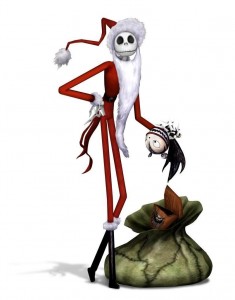 Today’s essay is a little different from what I’ve been writing as of late, and I hope that my faith in my readers is not misplaced when I tell you that I think you can handle this. It’s nothing new or revolutionary, or even unique. It’s just a few of my personal reflections on Christmas and religion, and a few things in-between. It’s a little long and a little messy, but it’s what came out when I sat down to start writing. Still, I know that many of you will take immediate offense as soon you start reading anything that may contradict your own beliefs, and I apologize in advance for making any of you uncomfortable. For those among you that are so easily offended, I ask only that you hear me out. It gets better after it gets worse, and I think it all comes together in the end. Then again, I’ve been known to completely adore myself, so I might be a bit biased when I assure you that I do, in fact, have a point – a point I suspect you may not disagree with quite so much as you might think. So, read on adventurer. Your quest awaits!
Today’s essay is a little different from what I’ve been writing as of late, and I hope that my faith in my readers is not misplaced when I tell you that I think you can handle this. It’s nothing new or revolutionary, or even unique. It’s just a few of my personal reflections on Christmas and religion, and a few things in-between. It’s a little long and a little messy, but it’s what came out when I sat down to start writing. Still, I know that many of you will take immediate offense as soon you start reading anything that may contradict your own beliefs, and I apologize in advance for making any of you uncomfortable. For those among you that are so easily offended, I ask only that you hear me out. It gets better after it gets worse, and I think it all comes together in the end. Then again, I’ve been known to completely adore myself, so I might be a bit biased when I assure you that I do, in fact, have a point – a point I suspect you may not disagree with quite so much as you might think. So, read on adventurer. Your quest awaits!
As any reader of this blog already knows, I am no great fan of religion or of the blind adherence to the ancient and debatable doctrines from which all structured belief systems originate. That said, I’ve no qualms with personal beliefs gained through the inquiries and insights of each individual person. In fact, all I’ve ever demanded of anyone is that they think for themselves. If you wish to read up on all of the world’s many religions and decide to follow one over all others (or none at all), that is your educated choice to make. If, however, you’ve simply been indoctrinated into one belief system since childhood without ever pausing to contemplate either its credibility or applicability towards your own life, then it is with you that I do take umbrage.
 I don’t begrudge or discourage informed opinions based on hard-earned knowledge wrested from endless hours of research and contemplation, regardless of what those opinions may be. I am certainly not obligated to agree with those conclusions, but I fully recognize and support your right to have and to share them. The only problem – the only problem – I have with religion in general is that, for as much as any given church claims to encourage its members to independently study its teachings, there is most often very little latitude granted towards any such lofty endeavors. Instead, most study is guided either by the groupthink of the congregation (Bible study groups) or by the bias of the church leaders (goatee sportin’ Youth Pastors) rather than by simply allowing the student’s ideas and beliefs to grow organically from his or her own studies of the church’s sacred texts. No, the common order of the day is merely dogmatic and unyielding reverence for the church’s existing outlook towards theology, and for the sacred and unquestionable doctrines to which it so passionately cleaves. Therefore, it should come as no great surprise that I, being more a Humanist than anything else, have grown to reflect upon the structured institutions of religious thought and have come to the regrettable and odious conclusion that they are, all of them, complete bullshit.
I don’t begrudge or discourage informed opinions based on hard-earned knowledge wrested from endless hours of research and contemplation, regardless of what those opinions may be. I am certainly not obligated to agree with those conclusions, but I fully recognize and support your right to have and to share them. The only problem – the only problem – I have with religion in general is that, for as much as any given church claims to encourage its members to independently study its teachings, there is most often very little latitude granted towards any such lofty endeavors. Instead, most study is guided either by the groupthink of the congregation (Bible study groups) or by the bias of the church leaders (goatee sportin’ Youth Pastors) rather than by simply allowing the student’s ideas and beliefs to grow organically from his or her own studies of the church’s sacred texts. No, the common order of the day is merely dogmatic and unyielding reverence for the church’s existing outlook towards theology, and for the sacred and unquestionable doctrines to which it so passionately cleaves. Therefore, it should come as no great surprise that I, being more a Humanist than anything else, have grown to reflect upon the structured institutions of religious thought and have come to the regrettable and odious conclusion that they are, all of them, complete bullshit.
I know that sounds inflammatory, probably because I intended it to. I want nothing more than to inflame, ignite and destroy slavish devotion wherever I find it – and it’s hard to not find it everywhere at this time of year. For example, good little Christians celebrate the birth of Christ on December 25 through pageantry and festivals expressly forbidden in the Bible, but glossed over and accepted by their church leaders. On the one hand, you have the sacred text itself specifically banning the practice of cutting down and decorating a tree from the forest (Jeremiah 10: 1-4) while, on the opposite hand, you have Christian churches erecting massive Christmas trees in church sanctuaries from sea to shining sea. It’s the modus operandi of any belief system that encourages obedience rather than introspection to simply say, ‘This is the way it is done, this is the way is has always been done, and this is the way it will always be, for we have told ye this and ye shall believeth it, or ye shall goeth straight to Hellith.’ Or something like that, anyway. You get the idea.
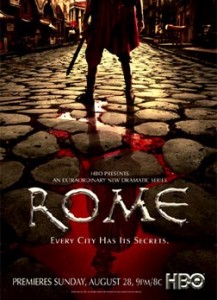 Christmas, as so many other things in Christianity, is a grossly misunderstood observance of an even more greatly misunderstood event. Jesus, the man from whom Christianity sprang, was not born on December 25th. The date was chosen after much fighting and bickering and debating amongst the Powers That Be, before finally settling on the familiar date we all know and love. Strangely, the knowledge that Christ’s birth is celebrated on an arbitrary day is not a little-known fact – yet the knowledge does almost nothing to impact Christian observations of the holiday. People may not know the specifics about why December 25th was chosen, and many certainly know little or nothing about Saturnalia or the feast of Sol Invictus, but it would hardly matter if they did. What people know is that the church chooses to observe the date, and so it must be Holy. They may know that it’s not in the Bible, and they may understand that the date was chosen to coincide with popular Pagan holidays, but all that matters is that the church tells them to honor it, and so they do. Fastidiously. Obediently. Blindly. But this was not always the case…
Christmas, as so many other things in Christianity, is a grossly misunderstood observance of an even more greatly misunderstood event. Jesus, the man from whom Christianity sprang, was not born on December 25th. The date was chosen after much fighting and bickering and debating amongst the Powers That Be, before finally settling on the familiar date we all know and love. Strangely, the knowledge that Christ’s birth is celebrated on an arbitrary day is not a little-known fact – yet the knowledge does almost nothing to impact Christian observations of the holiday. People may not know the specifics about why December 25th was chosen, and many certainly know little or nothing about Saturnalia or the feast of Sol Invictus, but it would hardly matter if they did. What people know is that the church chooses to observe the date, and so it must be Holy. They may know that it’s not in the Bible, and they may understand that the date was chosen to coincide with popular Pagan holidays, but all that matters is that the church tells them to honor it, and so they do. Fastidiously. Obediently. Blindly. But this was not always the case…
In fact, in the more extreme views of Christian theology held by the Puritans (from which nearly all Protestant churches in America originate), holidays such as Christmas and Easter were entirely forbidden because such non-biblical holidays lacked a scriptural foundation and could be easily likened to the idolatry and nature-worship of Paganism. As if that weren’t enough, let’s not forget that one of the stronger contentions against Catholicism by the Protestant Reformation was the observation of Mass. And, given that Christmas is a compounding of the words Christ and Mass, it shouldn’t take a great leap in understanding to see that earlier Protestants held rather a different view of the holiday. In fact, Charles Spurgeon – the so-called “Prince of Preachers” himself – once said, during a sermon on Christmas Eve, “We have no superstitious regard for times and seasons. Certainly we do not believe in the present ecclesiastical arrangement called Christmas: first, because we do not believe in the mass at all, but abhor it, whether it be said or sung in Latin or English; and secondly, because we find no scriptural warrant whatever for observing any day as the birthday of the Savior; and, consequently, its observance is a superstition, because not of divine authority.”
 The questioning believer might see the contradiction and decide whether to be a part of observing Christmas, or to adopt a more hardline Reformist view of the Bible by abstaining and thereby saving his mortal soul, should his beliefs steer him in that direction. Then again, even rigid Calvinists often fail to note that John Calvin observed the holiday, or that Martin Luther himself is attributed to popularizing the Christmas tree. Of course, when the rule of law in any religion is to blindly accept and believe only that which you are told, it isn’t surprising that even someone like Martin Luther would eventually have his teaching distorted and reinterpreted to the point of obscenity, were he to witness their degradation today. After all, it was his aversion to the belief that Saint Nicholas distributed presents in December (but not on Christmas) that led him to popularize the notion of the Christkindl (Christ Child) in an effort to put the focus back on the birth of Christ, where he felt it belonged. However, after the tradition was transplanted to the New World and observed by English settlers, Christkindl became Kris Kringle, who became synonymous with Santa Claus, who had himself replaced Saint Nicholas as the mythical force du jour of the holiday season. A little research, a bit of reading, and all of this is clear to anyone who wishes to look – but far too many people would rather just accept doctrine rather than think and decide for themselves.
The questioning believer might see the contradiction and decide whether to be a part of observing Christmas, or to adopt a more hardline Reformist view of the Bible by abstaining and thereby saving his mortal soul, should his beliefs steer him in that direction. Then again, even rigid Calvinists often fail to note that John Calvin observed the holiday, or that Martin Luther himself is attributed to popularizing the Christmas tree. Of course, when the rule of law in any religion is to blindly accept and believe only that which you are told, it isn’t surprising that even someone like Martin Luther would eventually have his teaching distorted and reinterpreted to the point of obscenity, were he to witness their degradation today. After all, it was his aversion to the belief that Saint Nicholas distributed presents in December (but not on Christmas) that led him to popularize the notion of the Christkindl (Christ Child) in an effort to put the focus back on the birth of Christ, where he felt it belonged. However, after the tradition was transplanted to the New World and observed by English settlers, Christkindl became Kris Kringle, who became synonymous with Santa Claus, who had himself replaced Saint Nicholas as the mythical force du jour of the holiday season. A little research, a bit of reading, and all of this is clear to anyone who wishes to look – but far too many people would rather just accept doctrine rather than think and decide for themselves.
Curiously, Protestants seem completely oblivious to irony around this time of year. Each Christmas season brings with it the inevitable battle cry from the Religious Right claiming that the holiday is being stolen from the people. Ineffective protests demanding boycotts of stores that insist on wishing patrons a Happy Holiday rather than a Merry Christmas commence and dissipate with a whimper, often going ignored even by the people posturing themselves as supporters of the initiative. (It’s tough to be righteous when faced with the overwhelming temptation of Always Low Prices, after all. Not that the hand-wringing left wingers are any better, mind you. Not with their bleeding heart mentality motivating them to legislate everything good in this world out of existence through a policy of offending no one by equally offending everyone. Happy Christmakwanzukkah, everybody!) Yet, these very same right wing, evangelical zealots fail to recognize that they themselves stole the holiday from the Catholics. In fact, Protestants have done more to insult the sanctity of the religious observance by entirely removing Mass from the Christ Mass – yet they have no hesitations when it comes to complaining about seculars removing the Christ part by shortening the holiday to the simple and brief ‘X-mas’ (nevermind that the abbreviation doesn’t ‘remove Christ from Christmas’, but the X actually puts Christ right in there, as anyone with even a cursory understanding of history knows). No, instead today’s Protestants blissfully ignore (or fail to ever learn) the fact that the original Puritanical settlers of this country steadfastly opposed celebrating anything to do with the birth of Jesus, and that the original doctrines of what eventually blossomed into the varied American denominations we have today are growing ever more distant from their source material. Heck, even the comparatively open denomination in which I was raised (Presbyterian) didn’t formally observe Christmas until the late 1940s, and today my church observes Advent, has multiple worship services, and even sings Christmas Carols by candlelight on Christmas Eve.
Now, all that said – I personally enjoy Christmas. I know that all of my preceding bibblebabble seems to contradict the idea that I’d love the holiday, but I promise it’s true. I love exchanging gifts with friends and loved ones, I enjoy spending time with friends old and new, and I encourage the spirit of charity that permeates the air. Even if it’s mostly in the form of lip-service and one-time donations, a lot of charities receive the bulk of their yearly donations at Christmas, and it’s hard to argue against being charitable (but in a few sentences, I’ll try). I do, however, deeply resent the forced jubilance and faux merry-making that comes with the Christmas season.
 I don’t enjoy being unwillingly recruited into participating in the reindeer games of people I neither like nor respect, simply because it is Christmas and certain obligations are expected. I dislike being completely inundated with the ‘Christmas spirit’ by every last retail outlet on the planet trying to separate me from my cash. I hate things like restrictive and often embarrassing work parties, or socially required obligations such as enduring the insidious pain that comes from having to pretend to genuinely enjoy the suspicious tasting concoction some associate brings to a pot luck Christmas dinner. I dislike the social and professional
I don’t enjoy being unwillingly recruited into participating in the reindeer games of people I neither like nor respect, simply because it is Christmas and certain obligations are expected. I dislike being completely inundated with the ‘Christmas spirit’ by every last retail outlet on the planet trying to separate me from my cash. I hate things like restrictive and often embarrassing work parties, or socially required obligations such as enduring the insidious pain that comes from having to pretend to genuinely enjoy the suspicious tasting concoction some associate brings to a pot luck Christmas dinner. I dislike the social and professional demands requests to donate to Cause X, contribute to Cause Y, and to supply toys for one organization or another that has the word Tots in. But mostly – mostly – I despise having to endure the inescapable annoyance that comes from being constantly assaulted by offensively happy people incessantly ringing handbells located at the entrances and exits of every public building in the 48 contiguous states from Lubeck, Maine to Ozette, Washington. They are omnipresent forces during the time between Thanksgiving and New Year’s, and I hate being made to feel guilty about not tossing change into a bright red pot each and every time I make an emergency run to the store for ice packs and Band-Aids. (Or chocolate, depending on the emotional state of my wife and whatever I may or may not have done or not done at any given moment.)
For me, Christmas is not about what the church tells me I should be doing, or what friends and family choose to believe. It’s not about trees and presents and retail Hell. And, while growing up I always insisted upon decorating a sugar cookie with the words, ‘Happy Birthday, Jesus!’, Christmas isn’t just about His birthday. In truth, what Christmas means to me is an entirely personal thing (as is everything else in my life), and I refuse to allow outside interests to pervade my thoughts and dictate my behavior at this time of year…although my refusal is rendered moot by my proclivity towards tradition, a tenacious force against which even I am powerless. The traditions I enjoyed in my childhood translate to wistful nostalgia today that I always seek to recapture each and every time the holidays come around. I have no will against it, and therefore seek out all of the Christmas joy that I can possibly find.
 I want the Christmas tree, even though I know it is a silly and potentially hideous thing that starts out beautiful but that eventually transforms into an inappropriately festive dead thing that tends to linger in my living long after I’ve abandoned my New Year’s resolutions. I want to go to church on Christmas Eve and listen to the sermon, watch the children badly act in a badly directed play, and cap the whole thing off by singing carols by candlelight while either sweating or shivering outside on the church lawn in the notoriously uncooperative southeast Texas weather. I want to hang stockings and eat cookies, to rip apart the beautiful paper on packages meticulously wrapped by loving family members, and then to watch in fiendish delight as they try to penetrate the ball of ineptly wadded paper and invincible tape that I’ve handed them in exchange. I want to stay up late on Christmas Eve, pretending to be Santa Claus and stomping around on the roof. I want to drive around and look at Christmas lights, eat turkey and unidentifiable casseroles at family gatherings, then sit together in silence with my wife beside me, staring at the twinkling lights of our tree while Christmas music drifts softly across the room.
I want the Christmas tree, even though I know it is a silly and potentially hideous thing that starts out beautiful but that eventually transforms into an inappropriately festive dead thing that tends to linger in my living long after I’ve abandoned my New Year’s resolutions. I want to go to church on Christmas Eve and listen to the sermon, watch the children badly act in a badly directed play, and cap the whole thing off by singing carols by candlelight while either sweating or shivering outside on the church lawn in the notoriously uncooperative southeast Texas weather. I want to hang stockings and eat cookies, to rip apart the beautiful paper on packages meticulously wrapped by loving family members, and then to watch in fiendish delight as they try to penetrate the ball of ineptly wadded paper and invincible tape that I’ve handed them in exchange. I want to stay up late on Christmas Eve, pretending to be Santa Claus and stomping around on the roof. I want to drive around and look at Christmas lights, eat turkey and unidentifiable casseroles at family gatherings, then sit together in silence with my wife beside me, staring at the twinkling lights of our tree while Christmas music drifts softly across the room.
Strangely, though I want all of these things from Christmas this year just as I’ve always wanted them, I find myself wanting one thing more than any other, although I’ve yet to mention it. This year, I want something that I already have. Something I hope to always have. Something that makes each miserable morning tolerable through the hope and promise it brings with it in the evening. Something that makes the bad days less bad, and the good days worth remembering. Something that means the same thing whether it’s spelled kazoku, rodzina, familia – or just plain Family. What I want for Christmas this year is simple: I want my family. Always, my family.
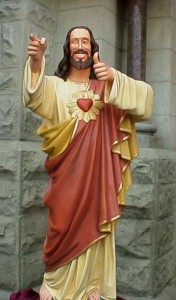 I encourage everyone to believe exactly what it is in this life that they need to believe, no more and no less. I simply want everyone to do their own thinking, come to their own conclusions, and form that mysterious ‘personal relationship with God’ that eludes so many of the Faithful. For my part, I will reveal that I refuse to believe in a Creator who plays the role of a disciplinarian father busily overseeing children he never wants to grow up. This is the typical view of God in Christianity, the stern and loving father who watches over his children and, in exchange, demands their devotion, their loyalty, and their unwavering love at the threat of punishment, should they believe the Wrong Things. Instead, I take the atypical view and elect to believe in God as an image of my own interpretation, as a father who loves his children, but who does not want them to stay in a perpetual state of childhood. As any parent, He wants his children to grow up, to become independent, strong, and wise. He is a father who wants his children to find their own way, to make their own decisions and make something better out of what He has given them in this world, rather than simply accept that life is a temporary misery to fret over whilst awaiting an afterlife filled with shiny, happy things and lots and lots of singing. (And harps. Always harps.) More than anything though, He wants his children to simply love Him out of love itself, rather than idly worshiping Him out of the intrinsic fear of consequence that angering Him would bring. So, whether Jesus was born on December 25th or April 17th, it doesn’t really matter to me. In fact, none of it truly matters, not really. In the end, religious thought is only what those in power want it to be, what the people of the world need it to be, and what each of us ultimately chooses to believe it actually is. All of us, together and apart as individuals, whole and complete and thinking. Above all, thinking.
I encourage everyone to believe exactly what it is in this life that they need to believe, no more and no less. I simply want everyone to do their own thinking, come to their own conclusions, and form that mysterious ‘personal relationship with God’ that eludes so many of the Faithful. For my part, I will reveal that I refuse to believe in a Creator who plays the role of a disciplinarian father busily overseeing children he never wants to grow up. This is the typical view of God in Christianity, the stern and loving father who watches over his children and, in exchange, demands their devotion, their loyalty, and their unwavering love at the threat of punishment, should they believe the Wrong Things. Instead, I take the atypical view and elect to believe in God as an image of my own interpretation, as a father who loves his children, but who does not want them to stay in a perpetual state of childhood. As any parent, He wants his children to grow up, to become independent, strong, and wise. He is a father who wants his children to find their own way, to make their own decisions and make something better out of what He has given them in this world, rather than simply accept that life is a temporary misery to fret over whilst awaiting an afterlife filled with shiny, happy things and lots and lots of singing. (And harps. Always harps.) More than anything though, He wants his children to simply love Him out of love itself, rather than idly worshiping Him out of the intrinsic fear of consequence that angering Him would bring. So, whether Jesus was born on December 25th or April 17th, it doesn’t really matter to me. In fact, none of it truly matters, not really. In the end, religious thought is only what those in power want it to be, what the people of the world need it to be, and what each of us ultimately chooses to believe it actually is. All of us, together and apart as individuals, whole and complete and thinking. Above all, thinking.
Then again, if Jesus really was born on December 25th and I on January 18th, then we’re both Capricorns and I have something in common with the Son of God Himself. Awesome!
*Originally published on December 8, 2009.


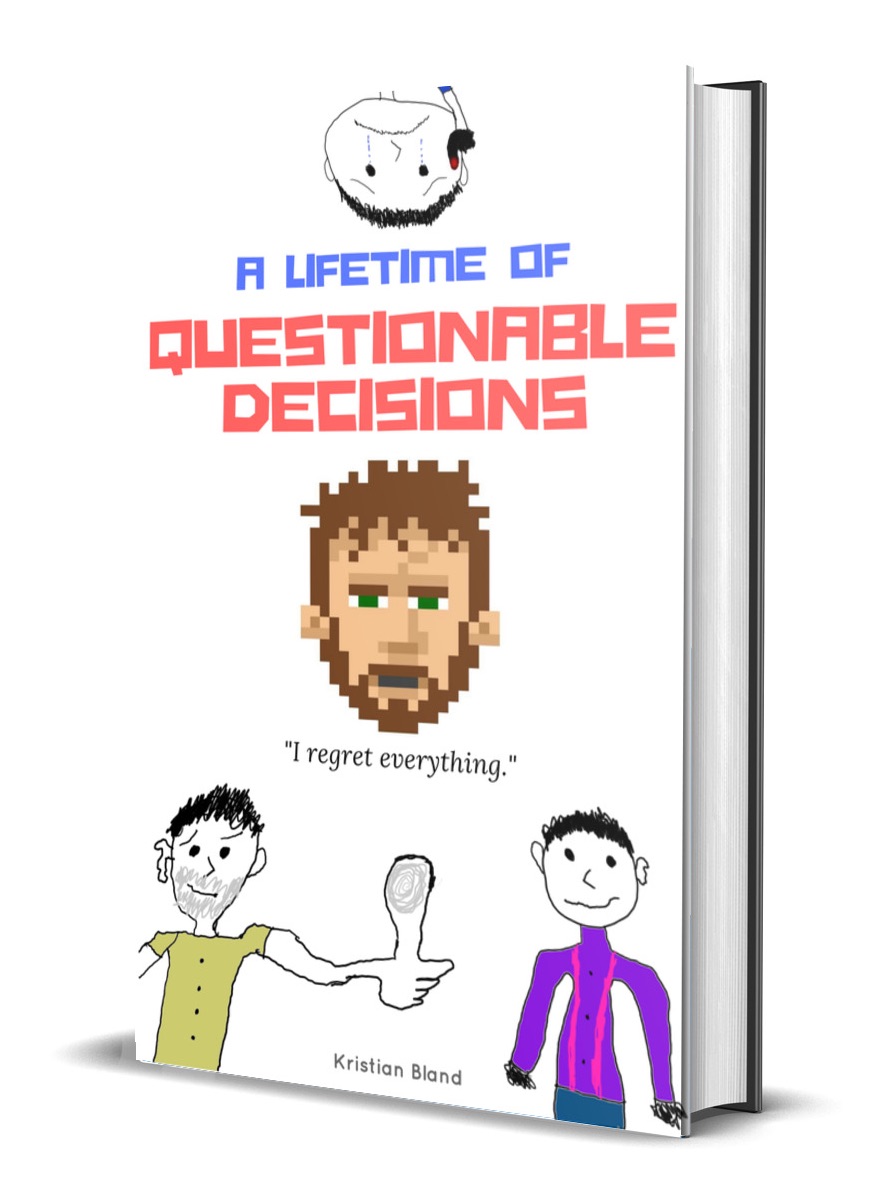




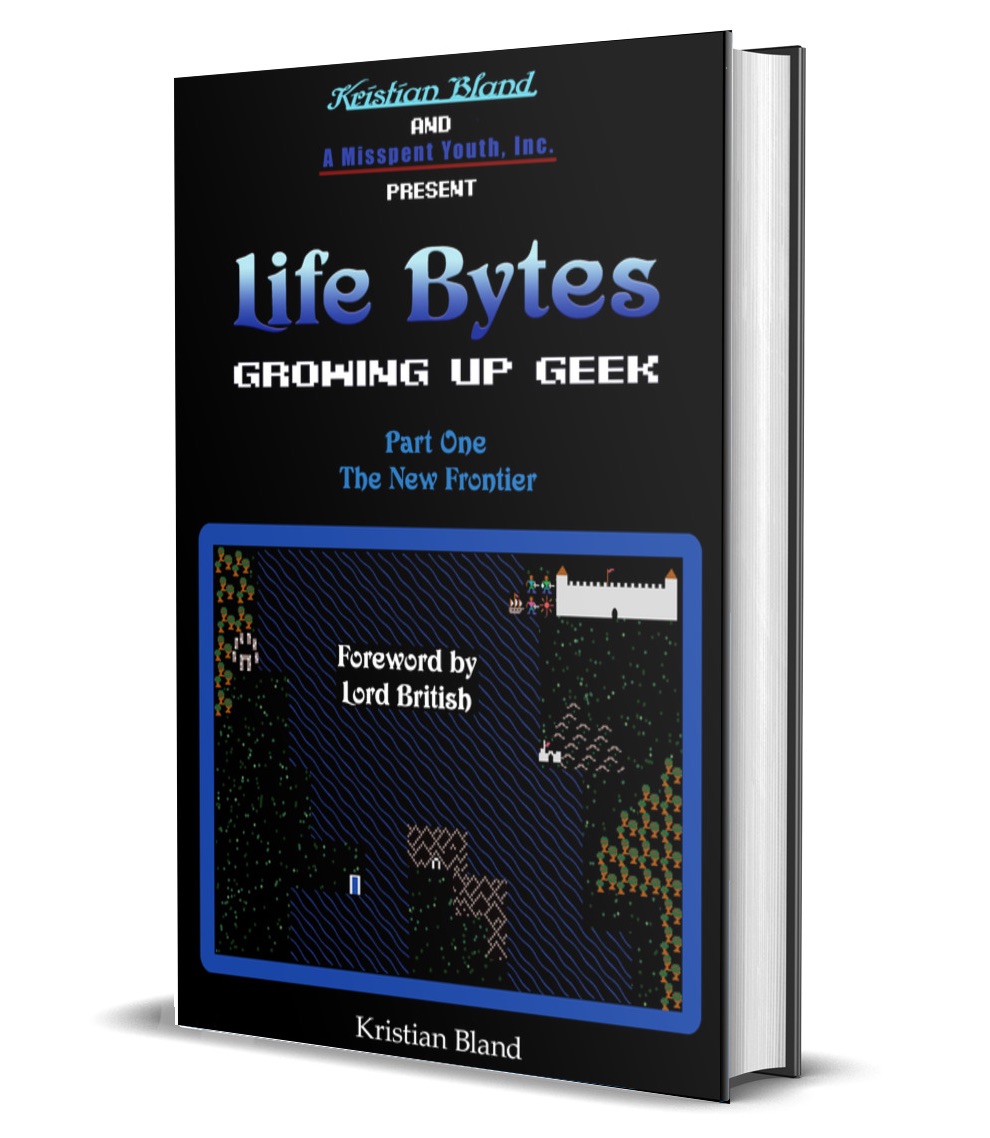
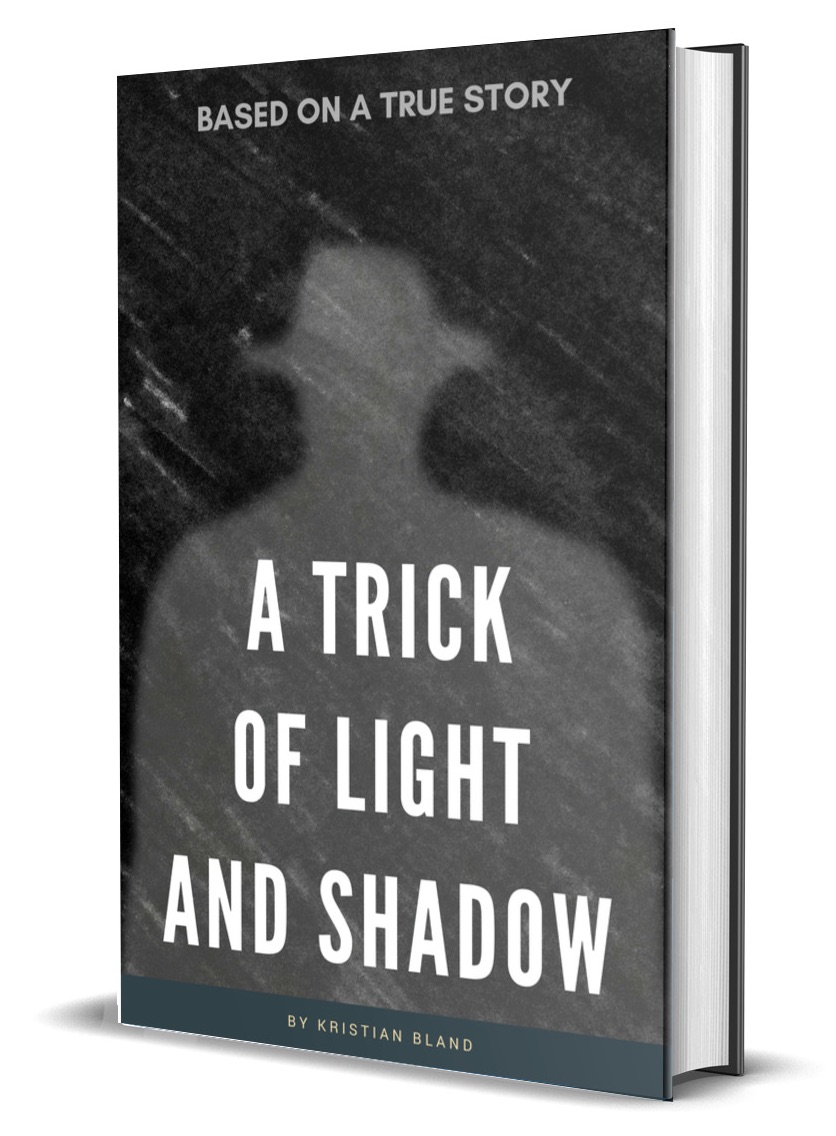
You must be logged in to post a comment.